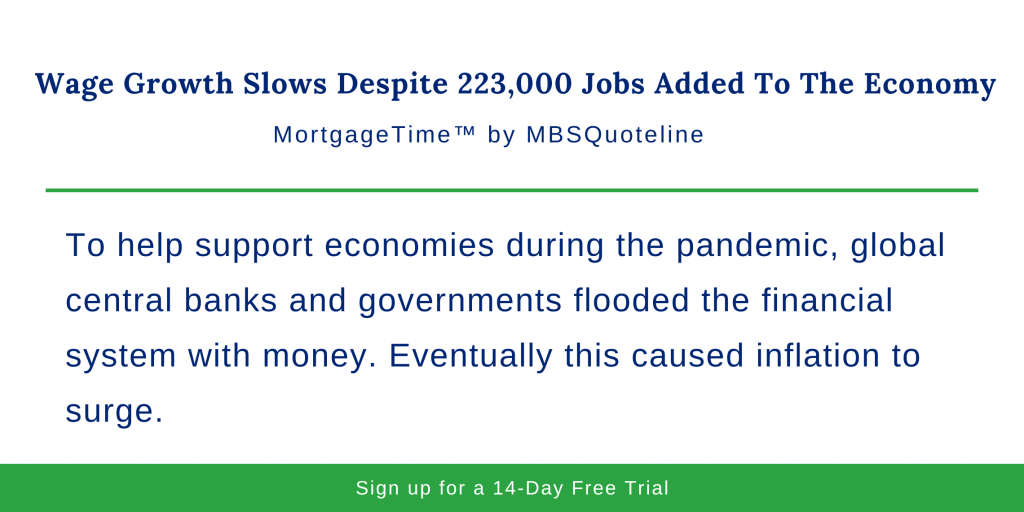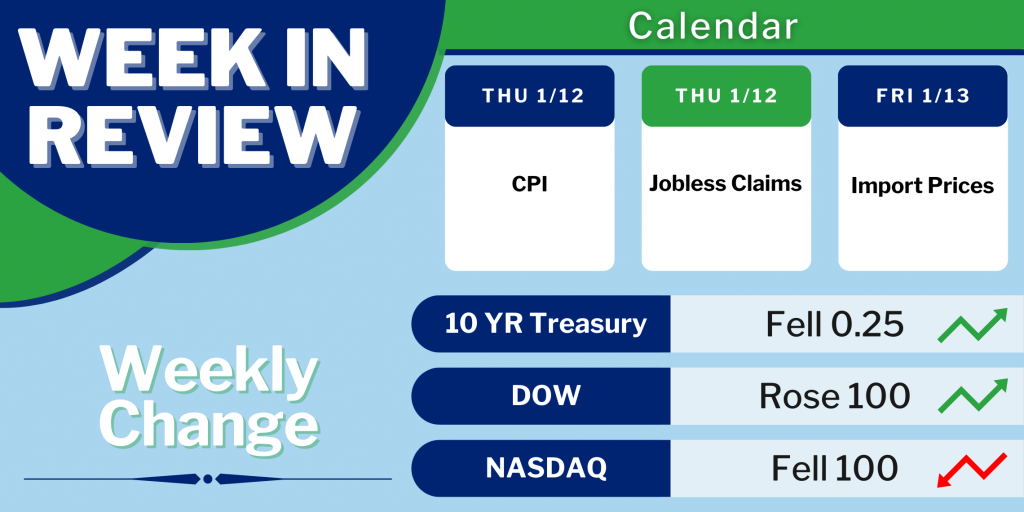After two years of exceptionally low mortgage rates, a major change took place in 2022 in relation to wage growth.
Wage Growth Slows
To help support economies during the pandemic, global central banks and governments flooded the financial system with money. Eventually this caused inflation to surge. To bring inflation back under control, central banks had to aggressively tighten monetary policy last year.
Shortly after, wage growth slowed and mortgage rates began to rise. After starting the year below 3.50%, mortgage rates more than doubled. However, they started a bit during the final weeks of 2022.
Inflation Still Stagnating Wage Growth
The minutes from the December 14 Fed meeting repeated their firm commitment to restrictive monetary policy. As the Fed continues to fight inflation, they revealed that no officials expect any federal funds rate cuts in 2023. According to the minutes, officials observed that it was likely “to take some time” to gain confidence that inflation was on a “sustained downward path”. The Fed’s target level of inflation is 2.0%.
While both officials and investors expect that additional rate hikes will take place early in the year. However, some investors anticipate that the Fed will reach its terminal (peak) rate soon. Investors anticipate that the Fed will begin cutting rates late in the year due to slower economic growth.
Wage Growth Misses the Mark
With Fed officials closely watching for labor market tightness to ease, the economy gained 223,000 jobs in December. This has been the smallest monthly increase in two years. Average hourly earnings, an indicator of wage growth, were 4.6% higher than a year ago. Thus, average hourly earnings fell far below the consensus forecast of 5.0% and the lowest level since August 2021.
The unemployment rate unexpectedly fell from 3.6% to 3.5%, matching the lowest level in decades. Investors focused mostly on the surprising earnings data, since slower wage growth reduces inflationary pressures. Overall, this report was favorable for mortgage rates.
ISM Reveals Economic Position
Aside from the sluggish wage growth, two other important economic reports were released this week from the Institute of Supply Management (ISM). The report showed weaker economic growth.
The ISM national services sector index fell to 49.6 and the ISM national manufacturing index dropped to 48.4. Both readings were the lowest since May 2020, and levels below 50 indicate that the sectors are contracting.
Never miss an update with MBSQuoteline. To receive by-the-minute updates on mortgage-backed securities, try our platform free for 14 days.
Stay connected with MBSQuoteline on social media by following us on Facebook, Twitter, and LinkedIn.
All material Copyright © Ress No. 1, LTD (DBA MBSQuoteline) and may not be reproduced without permission. To learn more about the MortgageTime™ newsletter, please contact MBSQuoteline at 800.627.1077 or info@mbsquoteline.com.



